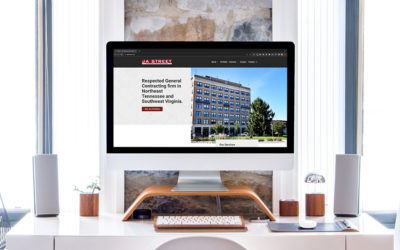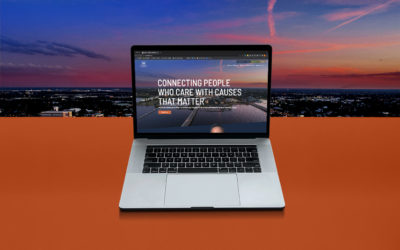Selecting a web designer can be a harrowing experience, one where you have to ask many questions, interview candidates, and ultimately place your trust in someone outside your company to properly and effectively represent your brand in a digital space. Your selected web designer also places their trust in you, that you will be reasonable in your expectations of timeframe, capability, and revision. Here’s six things that your web designer wants you to know but probably won’t tell you.
- I NEED HELP WITH YOUR ABOUT US PAGE.
One of the first things that I do is research the heck out of your company. I review your existing web site (if there is one), your social media channels, your reviews on Google and Yelp, your competitors in-market and out-of-market. I become pretty knowledgable on your company and your industry. But I can’t write your About Us page alone.
The About Us page is one of the most viewed pages on a website. Your potential customers want to know your story. This is where you get to introduce yourself and explain why your visitor cannot go on another minute without your product or service.
So when our content team starts to generate the keyword-rich, ridiculously captivating content for your website, you need to be prepared to help with the About Us page. The typical answer I get from clients is either “We don’t need an About Us page” or “Let me send you a picture of our staff outside our building from my iPhone”. That’s not good enough. We need your story so we can weave it into a digital narrative.
2. YOUR WEBSITE SHOULD BE AN INVESTMENT, NOT AN EXPENSE.
A website is not a souvenir from a vacation or a new chair for the lobby. It is a living, breathing representative of your company. It advocates on your behalf, face to face with your consumers, all around the world simultaneously. It is oftentimes your sales department, support department, and customer service department, all at the same time.
This amount of brand influence demands a certain level of respect. Websites should never be considered an As-Seen-On-TV “set it and forget it” automatic kitchen gadget. Just as your employees require continual communication and training to be the best advocate for your company, your website needs to be updated, tweaked, refreshed, refined, and cultivated regularly. Static, dated websites are not only penalized by Google, they are mostly ignored by your customer, who spends less than 4 seconds deciding if they are going to look past the home page.
Be prepared for a partnership with your marketing agency. Expect to invest in your website for the long haul. Budget that investment and measure the return.
3. YOUR WEBSITE WILL NOT LOOK THE SAME ON EVERY BROWSER.
We are past the days of Internet Explorer 6 and Netscape 4. Modern browsers are called modern because they do modern things. Websites are ultimately built using strings of code that are broken down into binary, transmitted at lightning speed across data lines, and interpreted by your browser and displayed as close to the original as the browser is capable.
As technology advances, site code and capability changes, allowing designers to do pretty spectacular things with that binary code. We don’t need Flash to do flashy things. We don’t need thousands of lines of code for interactive text and image displays. But we also can’t do those things properly on browsers that pre-date Facebook.
Your web designer is going to test your site on all major browsers prior to launch, just to make sure the functionality is right, but screen resolution, monitor settings, and outdated browsers are going to make it look different.
4. THINK ABOUT WHAT YOU WANT YOUR SITE TO DO BEFORE WE START.
Websites are built from a framework foundation set in place from the beginning of the process. Altering colors, text, and images is a pretty simple process. But major changes to site capabilities can be more challenging.
Think about whether you want your site to be capable of e-commerce, blogging, event registration, social media integration, front-end user submission and other major functions before you get started with your web agency.
5. NO, I’M NOT MAKING YOU LOGO BIGGER.
Probably the #1 request I get from clients: can you make my logo larger?
No.
I know you’ve spent countless hours making this amazing logo-mark that perfectly describes your personal style and your company vision. We’ve worked with you to create the ideal color palette that evokes the right emotions. You’ve branded your company vehicles and buildings with this work of art.
That doesn’t mean that the logo needs to be the dominant image on your website. Company logos (almost) always live in the upper left corner or the upper middle of websites (just like on newspapers, letterhead, and Apple OS X screens). Your visitor knows where to look to see what website they’re on.
6. TRUST YOUR DESIGNER.
Let me assure you: if you’ve found yourself a reputable web agency, they have your best interests in mind. They want you to succeed. They want to form a partnership with your company. They look at themselves as an extension of your staff.
We might seem like perfect strangers. How can we expect you to trust us with your brand, with your visions and dreams? Because we want you to win. That’s why we asked for your business.
But keep in mind: just as you are the expert in your industry, we are experts in ours. We have to balance your vision with professional expertise. When we push back, tell you that something you want won’t work, or that we have a better idea for aesthetics or functionality, trust us. We’re on your side.






0 Comments